Aquarium Soil - Curse and Blessing?
Soil in the aquarium - It all started with bee water...
Clear, soft and slightly acidic flowing waters - this is where they are at home, and they have adapted perfectly to these conditions. We are talking, of course, about our beloved bee shrimp of the genus Caridina logemanni, but also about their cultivated forms, which need the same conditions.
For a long time, however, the location of the bee shrimp was not known at all, and the search for the optimal water values was a poking in the fog in the early days. Slowly it became clear that bee shrimp do better in rather soft water, and a lot of experimentation was done with peat, desalinators and so-called pH-minus substances. It was extremely laborious to produce so-called "bee water", and every established breeder and keeper had his special method for it.
At that time, bee shrimp were "professional shrimp", which could only be kept or even propagated with a distinct wealth of experience or the advice of an experienced mentor.
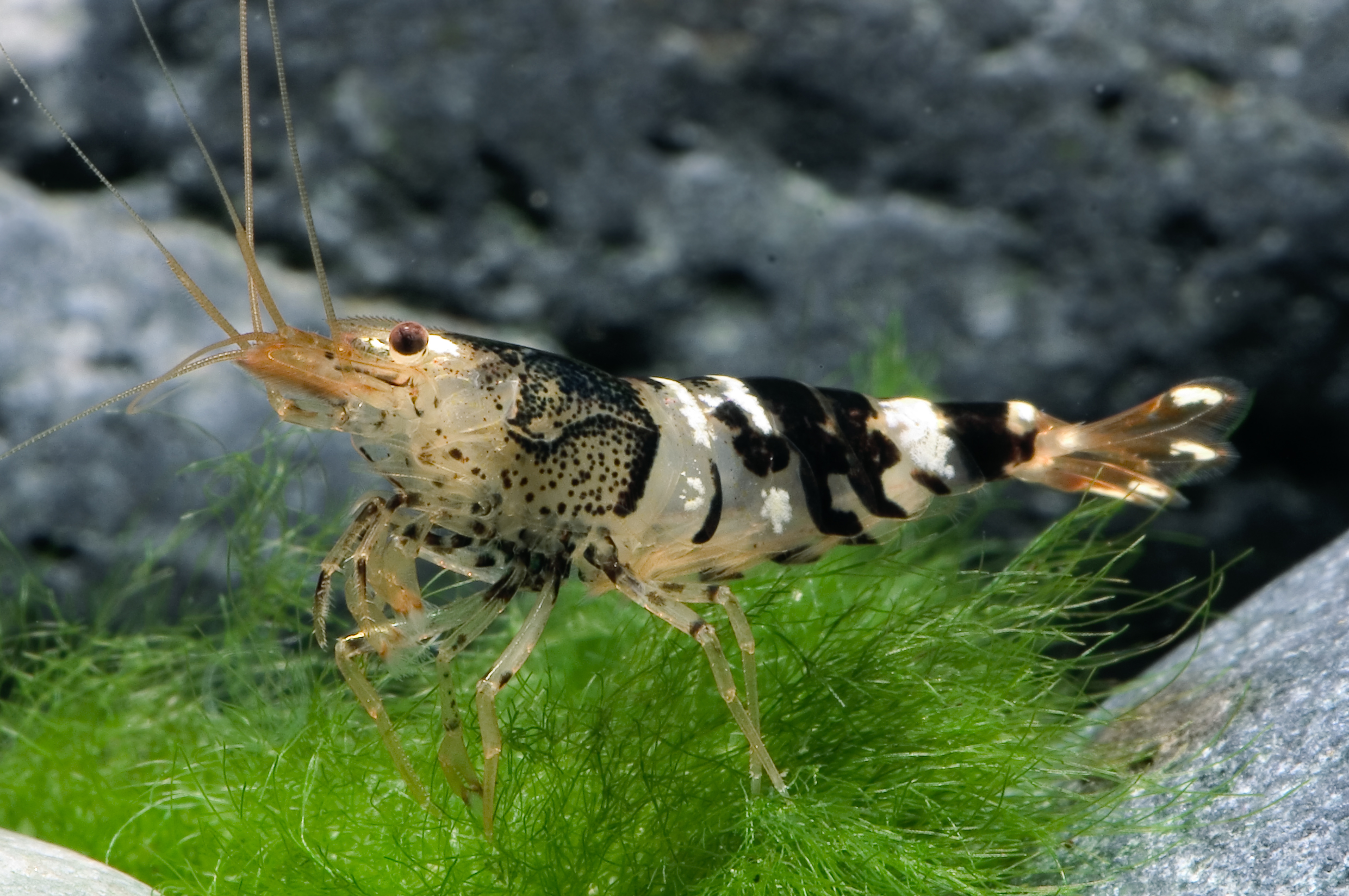
The birth of the Soil
This was the case until the day when it was discovered that certain bonsai substrates - so-called acadama soils - had strong pH-lowering and water-softening properties, even in the aquarium. The age of active substrates had thus dawned.
Innovative companies from Japan quickly constructed customized bottom substrates for aquariums from the Akadama plant soil, which were ideal for shrimp aquariums in terms of appearance and performance. With these substrates as a normal bottom substrate or in combination with a bottom filter system, it was from now on possible to produce the perfect bee water completely without technical equipment or chemical additives and without annoying water panning, directly in the tank.
Depending on the variant, the required water quality can be adjusted, the appropriate pH value can be created and even a nutrient supply for the plants can be realized.
Today, numerous manufacturers and retailers offer a wide range of Soil products for a variety of purposes. There are special soils for soft water shrimp, such as Glass Garden Environment and ShrimpKing Active Soil, and soils that are particularly suitable for heavily planted aquascaping aquariums, such as ADA's soils or Dennerle Scapers Soil.
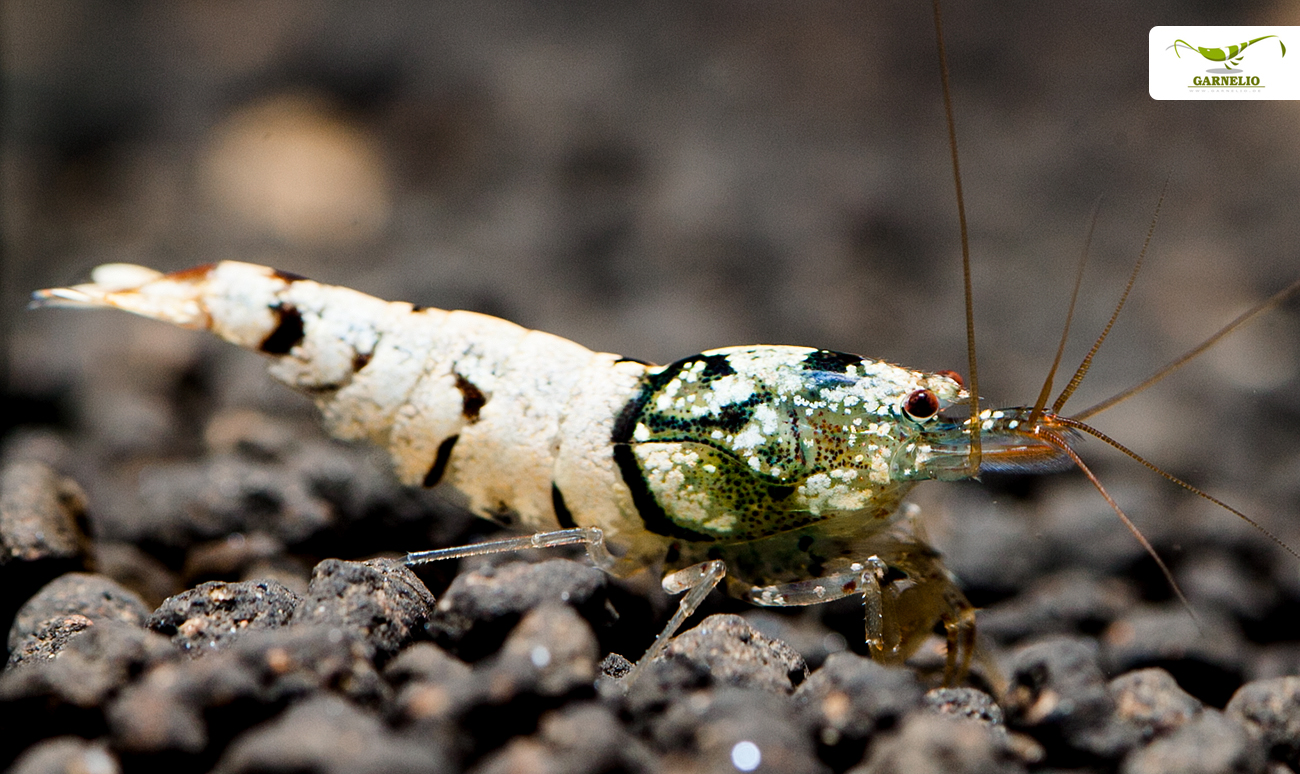
Shadow side of the Soil
In addition to all the positive aspects that active soils offer, however, they also have a downside: depending on the source water and the runtime, these substrates lose their mode of action over time, namely the ability to adjust the desired water parameters such as carbonate hardness, total hardness and pH. Under certain circumstances, stored substances can be released back into the aquarium water, which can result in severe losses of stocking.
How does aquarium soil actually work?
Chemically, an active substrate is nothing more than a weakly acidic ion exchanger, which owes its ability to soften water to the fact that it contains various layered and framework silicates such as smectite, clinoptilolite, bentonite and illite.
Aquarium Soil = Ion exchanger
The principle of ion exchange is based on the fact that the higher the charge of the ions and the larger their ion radius, the more strongly they are bound to the ion exchanger - in our case, the soil grain. For example, Na+ is displaced in the ion exchanger by Ca2+, Ca2+ in turn by Al3+. The stronger binding ion displaces the weaker binding ion from the binding sites of the ion exchanger material. It must therefore be ensured that the unwanted ion to be removed from the solution is more strongly bound than the ion bound to the ion exchanger. Other important factors influencing this are: the pH value of the solution in connection with the type and number of binding sites of the ion exchanger material and also the respective substance concentration. In the case of Aquariensoil, the silicates are charged and discharged by means of acids in order to obtain the specific effects on the aquarium water, similar to the case with cation exchange resins.
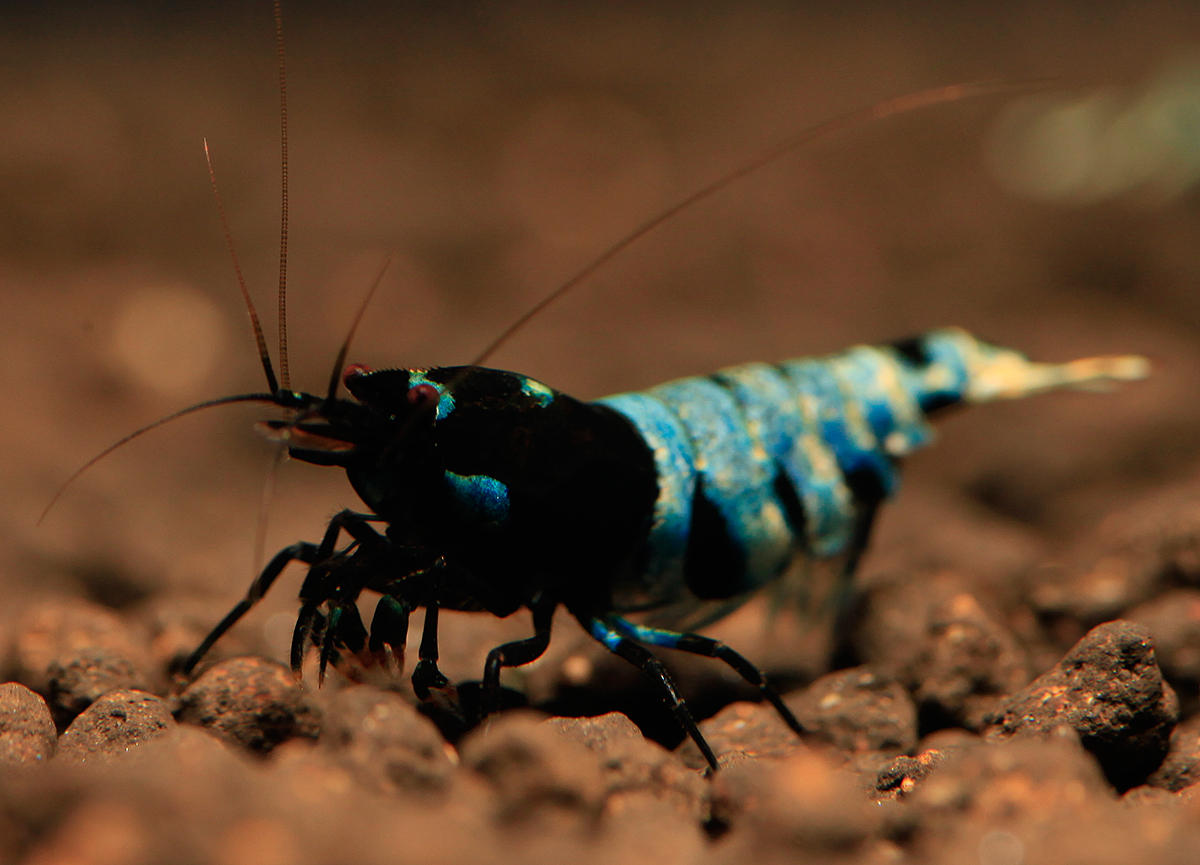
The ion exchange process explained in a simple way
Soil is naturally still loaded with hardness minerals such as calcium, magnesium, potassium, which benefit the plants and animals in the aquarium.
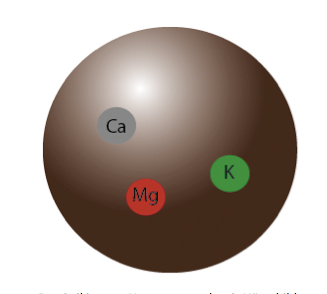
The Soil is treated by means of an acid, a desorption of the hardness minerals takes place.
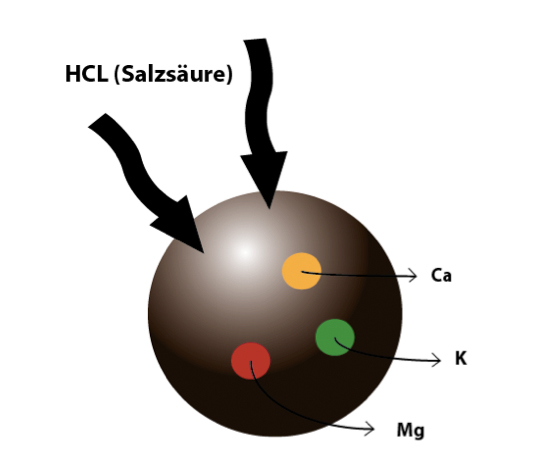
The Soil is now loaded with protons H+ of hydrogen.
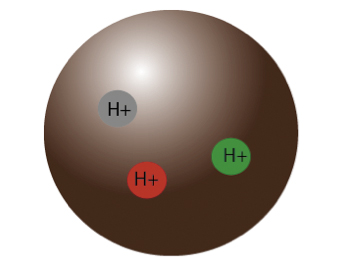
The hardness constituents now exchange places via cation exchange. H+ protons enter the water and acidify it, carbonate-bound hardness formers are sorbed (absorbed).
The carbonate hardness, as well as the carbonate-bound total hardness are reduced.
HCO³- + H+ --> H²CO³
Carbonic acid is produced by the carbonate destruction, this is absorbed by the plants as well as biofilms, a large part escapes through the water surface into the atmosphere.
For optics or additional benefits, other additives such as plant carbon, volcanic ash and nitrogen compounds are also used in Soils.
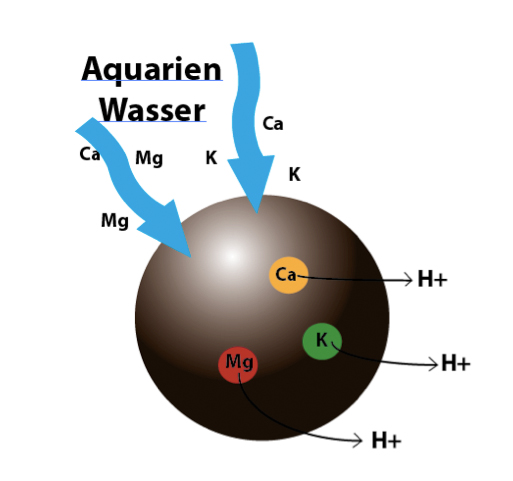

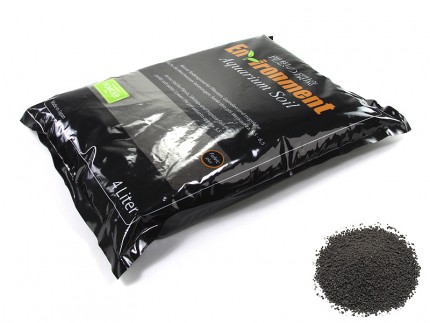
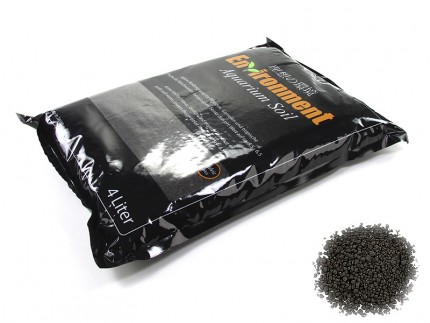
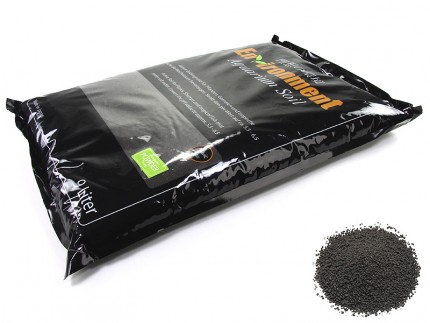
sehr informativ
Liebes garnelio team, ich verfolge eure Blogs immer mit großem interesse.
Bei euch kann ivh immer viel lernen und der Blog kommt gerade richtig :)
Macht weiter so !!!
sehr interessant !!!
Es ist ein ganz toller Beitrag, ich bin ja noch nicht so lange mit diesen "Virus" befallen und kann gar nicht genug Infos erhalten. In meinen Becken habe ich in der Bodenmitte einen Glasstreifen eingeklebt , um den Grund einfacher teilweise auszutauschen . Gibt es denn schon Erfahrungswerte in welchen Abstand das Soil erneuert werden sollte ?
Ich kann mich nur anschliessen, "Macht weiter so !"